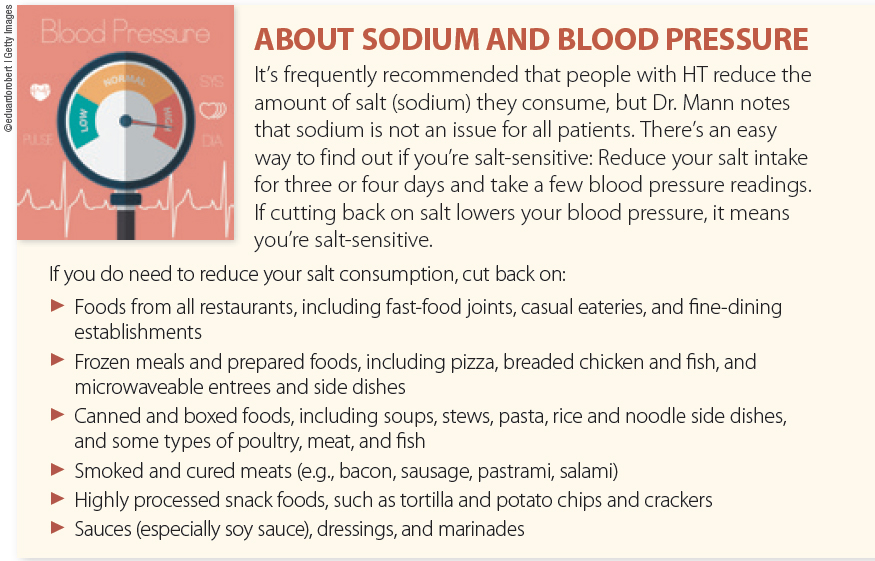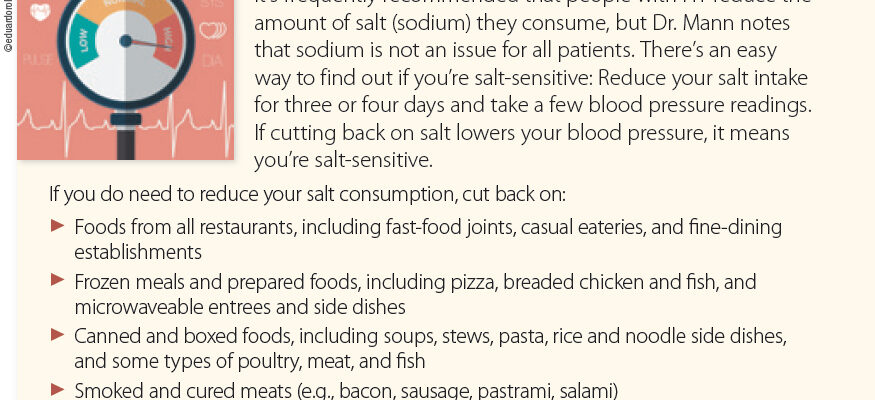Uncontrolled Hypertension Makes You a Target for Heart Attack and Stroke
Do you have high blood pressure, or hypertension (HT)? If you do, are you making efforts to get or keep it under control? If not, it’s time to take HT more seriously.
“The connection is clear: When HT is controlled, many cardiovascular events, including heart attacks and strokes, are prevented,” says Samuel Mann, MD, a hypertension expert at Weill Cornell Medicine. Unfortunately, since HT usually doesn’t cause any problematic symptoms, it’s easy for people with HT to overlook the potentially dangerous consequences.
Most people with HT will need to take medication to get it under control, but adopting a healthier lifestyle also can reduce or eliminate the need for medication in some cases.
Medication Choices
When selecting a medication, your doctor will consider a number of factors, including your age, weight, lifestyle, medical history, and other health conditions you have.
“An important factor to consider is whether or not a patient has saltsensitive HT; if they do, a diuretic or calcium channel blocker is more effective than some other classes of drugs,” explains Dr. Mann.
The cause of HT is another important factor.
“Two main mechanisms are responsible for the majority of HT cases: One involves the kidneys, and the other involves the sympathetic nervous system,” explains Dr. Mann. “Once it’s determined what is driving the HT, we can then select the medications that are most effective at addressing that specific cause.”
Initially, your doctor usually will prescribe one medication, but many patients end up needing two or more drugs to get their HT under control.
Dr. Mann notes that it can take time to find what works best for each patient.
“A HT specialist knows that every patient is different and needs different treatment approaches. Individualization of drug selection is key for successful outcomes,” says Dr. Mann. “It’s not just finding the right medication; it’s also using the right dosage.”
Lifestyle Choices Are Important
For many people with mild hypertension, making lifestyle adjustments can lower blood pressure enough to bring it into the normal range. Lifestyle strategies that have the most significant effects on blood pressure include following a healthy dietary pattern, getting regular exercise, and weight loss for people who are overweight or obese.
The Mediterranean-style and DASH diets are two eating patterns that have been recognized for their beneficial effects on the cardiovascular system. Both of these diets focus on whole grains, fruits, vegetables, and lean proteins (including plant proteins such as beans, lentils, and nuts), and both limit red meat, sweets, and highly processed foods.
“One step to a healthier diet is going easy on the carbs,” says Dr. Mann. He suggests swapping fruits and vegetables for high-carb items like bread, pasta, chips, and crackers. When you do eat high-carb foods, choose whole grains, legumes, and vegetables, which are good sources of nutrients and fiber.
Getting aerobic exercise 30 minutes a day most days each week will also help reduce your blood pressure. Aerobic activities include brisk walking, jogging, cycling, swimming, and dancing—any activity that requires continuous movement of major muscle groups and causes a sustained increase in your heart rate. Dr. Mann says the type of activity you choose isn’t that important: “The best exercise is the one you like enough to do.”
Most people who combine healthy lifestyle choices with carefully selected medication can successfully get and keep their blood pressure under control.

The post Uncontrolled Hypertension Makes You a Target for Heart Attack and Stroke appeared first on University Health News.
Read Original Article: Uncontrolled Hypertension Makes You a Target for Heart Attack and Stroke »


